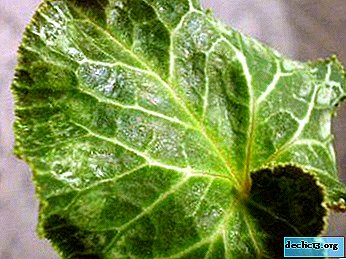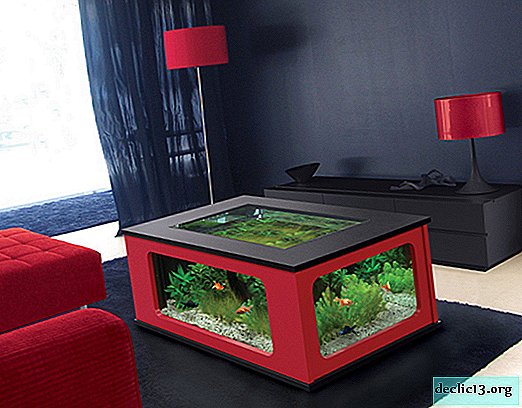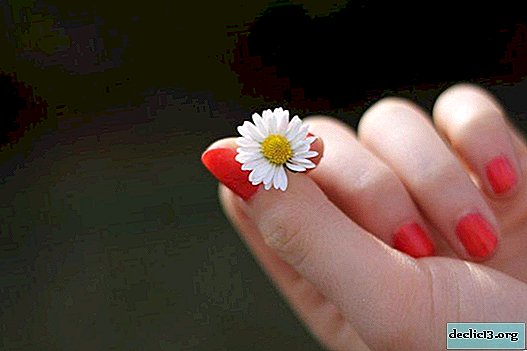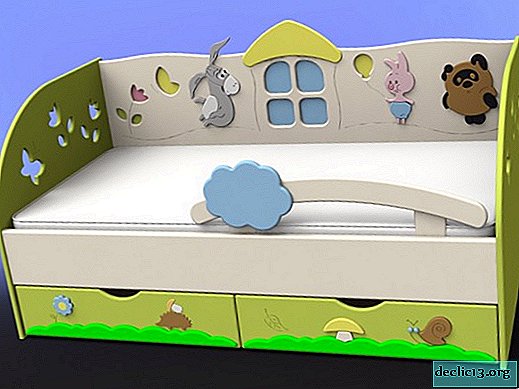How to clean bronze and stainless steel at home

Unprotected surfaces of bronze and stainless steel products fade over time. This is due to direct contact with oxygen, which is part of the air. Oxidation of objects is undesirable, since it leads to a reduction in service life and affects their attractiveness.
Known methods that effectively clean the surface of things from bronze and stainless steel. You can use vinegar, table salt, baking soda or household chemicals.
Precautionary measures
Before you begin, read the safety rules and fulfill the necessary requirements:
- Be careful when cleaning, exclude the ingress of active components on the mucous membrane of the eyes.
- To protect your hands from chemical attack, use rubber gloves. Wear plastic glasses to protect your eyes.
- When preparing solutions with sulfuric acid, add the substance to water, and not vice versa.
IMPORTANT! The use of chemical reagents is permissible only when the desired effect from ordinary household products has not been achieved.
Fulfilling these requirements, you will protect yourself from unpleasant consequences when working with chemical ingredients.
The most effective ways to clean bronze

Popular folk remedies
To clean bronze, use the "folk" methods and substances:
- Wheat flour;
- Lemon juice
- Baking soda;
- Common salt;
- Acetic essence;
- Powdered chicory;
- Construction chalk;
- Sawdust.
To clean a contaminated surface, a soft wipe is required: a rag of cotton or wool.
TIP! To remove plaque, use sanitary napkins.
Use a saucepan to mix dry ingredients with water. Apply the resulting paste to the brush. After processing the bronze, rinse the substance with a damp sponge, and wipe the surface dry with a soft flannel.
Specialized household chemicals
- Ammonia - always available from thrifty housewives.
- Oxalic acid - sold in pharmacies.
- Universal solvent (acetone).
Reagent cleaning of the surface of bronze objects is carried out by immersion in a container with a two percent solution of oxalic acid (or 10% ammonia). During the reaction, monitor the shade of the surface, and after darkening the latter, remove from the container. After cleaning, rinse the products with warm water and wipe with a soft flannel.
Video tipsHow to clean a stainless steel

Household stainless steel products are often found in modern kitchens: cutlery (spoons, forks, knives, pans), a kitchen sink and stove. The question of their safety is relevant, and therefore, we will pay close attention to the methods of leaving and cleaning from oxides and stains.
Folk ways
Household products include:
- Baking soda;
- Activated carbon;
- Table vinegar;
- Citric acid or juice.
Apply solids by applying to divorced areas and exposure for 1-2 hours for soda, 15-20 minutes for activated carbon. When applied, the coal powder is wetted with a small amount of water, the reaction begins, and gruel is formed. After processing, items are wiped with a soft sponge and washed under a stream of warm water.
Vinegar and citric acid are universal remedies that help to cope with stains that appear on the surface of a stainless steel. For processing, take a clean flannel rag, moisten with a little vinegar or lemon juice and rub the dull areas of the dishes. At the end of the procedure, rinse these areas with clean water and wipe dry.
Purchased Chemistry
The range includes household chemicals that can effectively cope with darkening and stains on the surface of stainless metal. When choosing, give preference to less aggressive chemicals to minimize exposure damage.
The most common formulations include imported products of the brands "Amway", "Magic Power", "Dr. Beckmann" and others. Before use, heat the dishes to a certain temperature, apply a liquid composition and leave for the time specified in the instructions. Rinse off the product with a sponge under running water and wipe the stainless steel dishes dry.
INFORMATION!The main advantage of household chemicals is time saving (traces of stains are removed quickly and for a long time). The disadvantage is the high cost of imported products.
Video recommendationsRecommendations for caring for items made of bronze and stainless steel
When cleaning bronze and stainless steel, it is necessary to provide for the possibility of maintaining the updated state. The fact is that after plaque removal with reagents, an invisible oxidation reaction begins to occur in the upper layer, which destroys the metal.
After cleaning, bronze products require a protective surface treatment. For these purposes, compositions of natural origin based on natural wax are used.
As for the stainless steel, to preserve its original appearance, experts do not recommend washing things in the dishwasher. For daily cleaning of food debris, it is better to use a regular sponge in combination with a suitable detergent. Do not use abrasives, sponges, or metal washcloths. Their use leads to the formation of scratches and loss of gloss characteristic for dishes.
Useful Tips
In addition to the considered techniques and methods, the following recommendations may be useful:
- Bronze tarnishes can be easily eliminated by applying peas that have been previously boiled and brought to a pasty state on the surface. The liquid mixture should dry completely, after which the product is washed in boiling water and wiped with a damp cloth.
- It is possible to restore the natural appearance of objects from bronze with toothpaste applied to flannel or suede. After processing, rinse the item with water and dry.
- To clean bronze from plaque, ammonia and mustard powder can be used.
- To restore the characteristic shine of stainless steel, coffee grounds are used.
In conclusion, we note that the application of these funds is similar to the methods discussed earlier. Please note that the listed methods and approaches for cleaning stainless steel and bronze are based on effective traditions that have been tested by time.

















